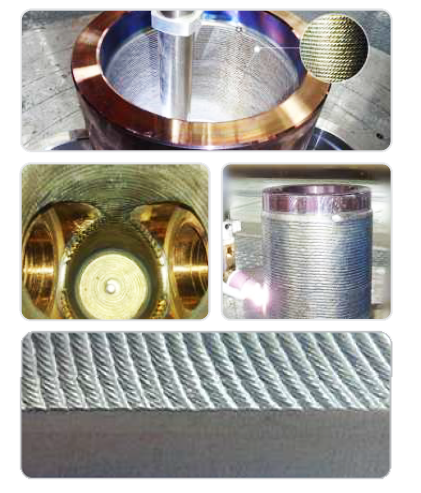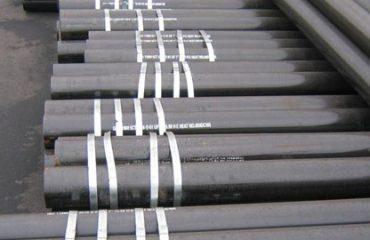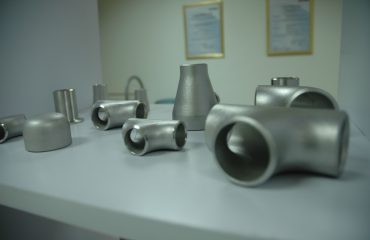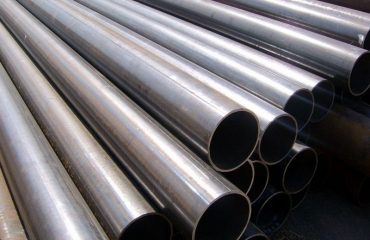
In the chemical and petrochemical industries, the transportation of corrosive chemicals and fluids is a common requirement. To ensure the safety and integrity of the piping systems in these industries, clad pipe and lined pipe are often utilized as effective solutions. These specialized pipes offer unique advantages, making them ideal for the challenges faced in chemical and petrochemical processes.
Advantages of Clad Pipe in Chemical and Petrochemical Industries
Clad pipe, with its corrosion-resistant inner layer, provides several key advantages for the chemical and petrochemical industries:
Chemical Resistance: Clad pipe offers exceptional resistance to a wide range of corrosive chemicals, including acids, alkalis, and solvents. This is crucial in industries where the transportation of aggressive substances is necessary. The corrosion-resistant inner layer of clad pipe prevents chemical reactions, ensuring the purity of the transported fluids.
Durability and Longevity: The corrosion-resistant layer of clad pipe protects the inner pipe from the damaging effects of chemicals, extending its lifespan and reducing the need for frequent replacements. This durability is particularly important in industries where continuous operation is required.
Safety Assurance: Clad pipe enhances safety by minimizing the risk of leaks and spills. The corrosion-resistant layer acts as a barrier, preventing the corrosive chemicals from coming into contact with the base material of the pipe. This reduces the chances of accidents, environmental damage, and potential harm to personnel.
Flexibility in Design: Clad pipe offers flexibility in terms of design and customization. The base material, corrosion-resistant layer material, and thickness can be tailored to specific project requirements. This allows for optimized performance in different chemical and petrochemical processes.
Applications of Clad Pipe in Chemical and Petrochemical Industries
Clad pipe finds widespread applications in the chemical and petrochemical industries, including:
Chemical Plants: Clad pipe is extensively used in chemical plants for the transportation of corrosive chemicals, such as sulfuric acid, hydrochloric acid, and caustic soda. The corrosion-resistant inner layer protects the pipe from chemical degradation, ensuring the safe and efficient transfer of substances.
Refineries: Clad pipe is essential in petroleum refineries where corrosive fluids, such as crude oil and various petroleum derivatives, are transported. The corrosion resistance of clad pipe is vital for maintaining the integrity of the piping systems in these environments.
Fertilizer Manufacturing: The fertilizer manufacturing industry relies on clad pipe for the transportation of chemicals used in the production process. The resistance of clad pipe to aggressive fertilizers, such as ammonia and phosphoric acid, ensures the efficient and reliable operation of fertilizer plants.
Specialty Chemicals: Manufacturers of specialty chemicals, such as dyes, pigments, and pharmaceutical intermediates, utilize clad pipe to transport highly corrosive substances. The chemical resistance and durability of clad pipe play a vital role in maintaining product quality and safety.
Advantages of Lined Pipe in Chemical and Petrochemical Industries
Lined pipe, with its protective lining layer, offers several advantages specifically tailored to the needs of the chemical and petrochemical industries:
Wide Chemical Compatibility: Lined pipe provides excellent resistance to a broad range of corrosive chemicals, including strong acids, caustic solutions, and organic solvents. The lining material, such as PTFE or PFA, acts as a barrier, preventing direct contact between the corrosive substances and the pipe material.
Smooth Surface and Reduced Friction: The lining of the pipe provides a smooth interior surface, reducing friction and promoting a consistent flow rate. This is particularly important in industries where the transportation of viscous or abrasive fluids is involved, as it minimizes the risk of clogging or scaling.
Temperature Tolerance: Lined pipe can withstand a wide range of temperatures, making it suitable for applications requiring high or low temperature resistance. This is crucial in the chemical and petrochemical industries, where processes often involve extreme temperature variations.
Hygienic Transport: Lined pipe ensures hygienic transportation of fluids in industries such as pharmaceuticals and food processing. The lining material used is approved for contact with food and pharmaceutical products, meeting stringent regulatory requirements.
Applications of Lined Pipe in Chemical and Petrochemical Industries
Lined pipe is extensively utilized in the chemical and petrochemical industries, including the following applications:
Pharmaceutical Production: Lined pipe is essential in pharmaceutical manufacturing, where the transportation of sterile fluids and active pharmaceutical ingredie




You must be logged in to post a comment.